Welcome
Here you will find the recordings of the Courses/Webinars offered by the UPRM-DHS Coastal Resilience Center of Excellence sponsored by the Department of Homeland Security.
Complete the videos to receive a certification of participation!
We appreciate your support by filling the Evaluation Form for each seminar or workshop. Please, take a few minutes to evaluate and comment on the activity you participated. Your feedback is very important and necessary for our continuous improvement and to satisfy better the needs of our audience.
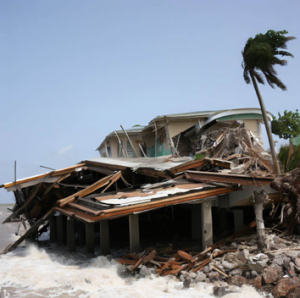
Towards a New Generation of Coastal Infrastructure: Adaptation Strategies, Community Development, and Resilient Infrastructure
The talk Towards a New Generation of Coastal Infrastructure: Adaptation Strategies, Community Development, and Resilient Infrastructure focuses on the development of innovative approaches for coastal infrastructure. It discusses strategies that address the challenges posed by climate change and rising sea levels while emphasizing the importance of resilient communities. This presentation aims to inspire new thinking in the design and planning of coastal infrastructure to create sustainable, adaptable, and resilient solutions that benefit both communities and the environment.
Resource: Ernesto L. Díaz, MEM | Caribbean Regional Manager Tetra Tech, Inc.
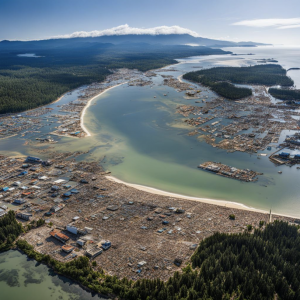
Mainstreaming Nature-Based and Hybrid Solutions to Build Coastal Resilience
The talk Mainstreaming Nature-Based and Hybrid Solutions to Build Coastal Resilience focuses on the development of innovative approaches in nature-based solutions for coastal resilience. It discusses strategies that address the challenges posed by climate change and rising sea levels while emphasizing the importance of resilient communities. This presentation aims to inspire new thinking in the design and planning of coastal infrastructure to create sustainable, adaptable, and resilient solutions that benefit both communities and the environment.
Resource: Ernesto L. Díaz, MEM | Caribbean Regional Manager Tetra Tech, Inc.

Puerto Rico Tsunami Map Tool
This course provides an overview of the impact of tsunamis through the evaluation of hazards, orientations about alert messages, and mitigation. The presenter discusses the development and use of the Puerto Rico Tsunami Map Tool of the Tsunami Ready Program by NOAA for improving dissemination activities, planning for the mitigation of hazards and evacuation plans, and developing educational material.
Resource: Roy Ruiz Vélez | Puerto Rico Seismic Network
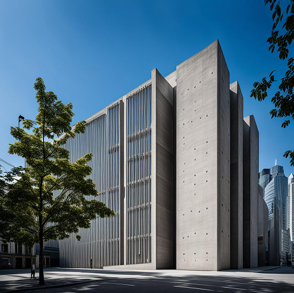
Microzone Wind Maps for the Puerto Rico Building Code 2018
The talk Microzone Wind Maps for the Puerto Rico Building Code 2018 discusses the development and application of microzone-specific wind maps in accordance with the 2018 Puerto Rico Building Code. These maps are essential for accurately determining wind loads on buildings and structures in different regions of Puerto Rico, taking into account local variations in wind patterns and conditions.
Resource: Luis D. Aponte Bermúdez | Department of Civil Engineering and Surveying, UPRM
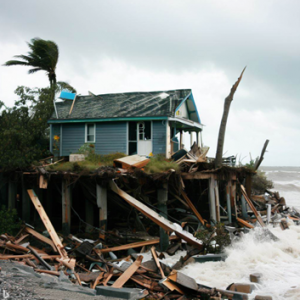
Resilient Design of Coastal Structures
Resilient Design of Coastal Structures delves into the strategies and principles behind designing coastal infrastructure that can withstand and adapt to the challenges posed by coastal environments, including rising sea levels and extreme weather events. The speaker discusses innovative engineering techniques and materials that enhance the durability and
longevity of coastal structures while minimizing environmental impact.
Resource: Dr. Ali Saffar | Department of Civil Engineering and Surveying, UPRM

2022 Puerto Rico Basin Symposium
The aim of the 2022 Puerto Rico River Basin Symposium is to emphasize topics that assist watershed managers and custodians in implementing management actions that enhance the watershed, reducing erosion and sedimentation, as well as point and non-point sources of pollution. The goal is to improve the health of the watershed and reduce risks to humans.
Resources: Several

Resilient Design of Coastal Structures
This talk on resilience and coastal planning in engineering discussed the vital role of resilience in designing and managing coastal infrastructure. Emphasis was placed on the necessity of adaptive strategies to address the growing risks associated with climate change and sea-level rise. The talk underscored that the incorporation of resilience into
coastal planning is crucial for the long-term sustainability and safety of coastal regions.
Resources: Esteban L. Biondi & Diego Delgado Tamariz | Applied Technology & Management

Convergence Ecotones: A New Framework For Understanding Adaptive Learning and Community Resilience
Resources: Dr. Cecilio Ortiz Garcia

Compound Inundation: Puerto Rico vs. Louisiana
The talk Compound Inundation: Puerto Rico vs. Louisiana compares and contrasts the challenges of compound inundation, which involves the occurrence of multiple flooding events in these two regions. It discusses the unique characteristics, vulnerabilities, and impacts of compound inundation in Puerto Rico and Louisiana. By examining the differences and similarities between these areas, the talk aims to provide valuable insights into strategies for managing and mitigating the complex challenges posed by compound inundation in coastal regions.
Resource: Félix L. Santiago-Collazo, MSCE, PE, PhD Candidate | Louisiana State University
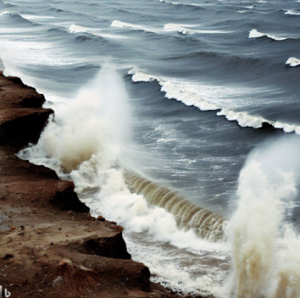
Past, Present, and Future Conditions for Tide, Surge, and Hydrologic Flows over Low-Gradient Coastal Land-margin Systems of the Northern Gulf of Mexico
The talk Past, Present, and Future Conditions for Tide, Surge, and Hydrologic Flows over Low-Gradient Coastal Land-margin Systems of the Northern Gulf of Mexico delves into the historical, current, and future patterns of tide, storm surge, and hydrologic flows in the coastal areas along the Northern Gulf of Mexico. It discusses how these natural processes have evolved over time and how they are expected to change due to factors like climate change. Understanding these conditions is crucial for coastal planning and resilience efforts in the region.
Resource: Dr. Scott C. Hagen | Director, Louisiana State University Center for Coastal Resiliency, Louisiana State University
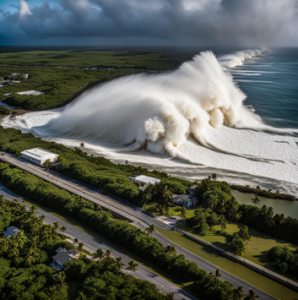
Preparando a la ciudadanía ante un tsunami: El "Community-based FRS Radio Pilot for Tsunami Response" y el "Puerto Rico Tsunami Information Gateway"
The talk Preparing the Public for a Tsunami: The ‘Community-based FRS Radio Pilot for Tsunami Response’ and the ‘Puerto Rico Tsunami Information Gateway’ focuses on initiatives aimed at enhancing public awareness and preparedness in the event of a tsunami. It discusses the Community-based FRS Radio Pilot program, which involves the
use of radio communication for community response, and the Puerto Rico Tsunami Information Gateway, a resource for accessing critical tsunami-related information. These efforts aim to educate and empower citizens to take effective measures in response to tsunami threats, contributing to community safety and resilience.
Resources: Dr. Víctor J. Rivera, Ms. Estela López & Ms. Noelia Figueroa | PRSN, UPRM
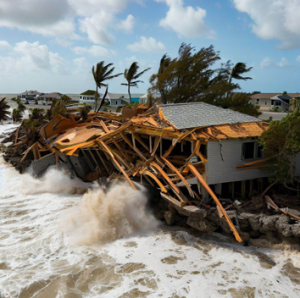
Coastal Risk Management a New generation of Coastal Infrastructure
The talk Coastal Risk Management: A New Generation of Coastal Infrastructure explores innovative approaches to addressing risks along coastal areas. It discusses strategies for managing and mitigating coastal hazards, such as sea-level rise and extreme weather events, through the development of resilient and adaptable coastal infrastructure. This
presentation focuses on the importance of reimagining and reinventing coastal development to enhance sustainability and safety in the face of evolving environmental challenges.
Resource: Ernesto L. Díaz, MEM | Caribbean Regional Manager Tetra Tech, Inc.
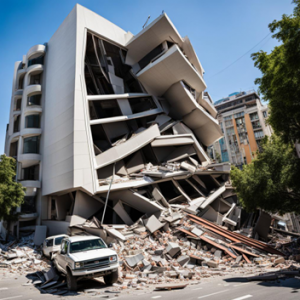
Riesgo Sísmico en Puerto Rico - 1er Conversatorio
The forum Riesgo Sísmico en Puerto Rico – 1er Conversatorio is dedicated to discussing the seismic risks specific to Puerto Rico. This conversation addresses the region’s vulnerability to earthquakes, explores potential impacts on infrastructure and communities, and delves into strategies and preparedness measures to mitigate seismic risks. The panel aims to raise awareness and foster a better understanding of the seismic threats in Puerto Rico, helping to promote safer practices and resilience in the face of earthquakes.
Resources: Dr. Luis E. Suárez, Dr. Ricardo R. López Rodríguez & Dr. José A. Martínez Cruzado | Department of Civil Engineering and Surveying, UPRM

Introducción al Diseño Sísmico de Estructuras de Concreto Reforzado & Rapid Visual Screening of Buildings for Seismic Resistance
The talk Introduction to Seismic Design of Reinforced Concrete Structures & Rapid Visual Screening of Buildings for Seismic Resistance provides an overview of seismic design principles for reinforced concrete structures. It also covers the rapid visual screening process, a method for quickly assessing a building’s seismic resistance. This presentation aims to equip the audience with fundamental knowledge of seismic design and the tools needed to evaluate a building’s ability to withstand earthquakes, contributing to safer construction practices and disaster preparedness.
Resource: Dr. Ricardo López | Department of Civil Engineering and Surveying, UPRM
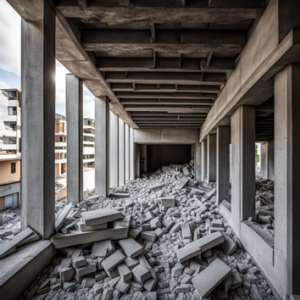
Circular Economy in the Construction Industry for Materials Scarcity Resilience - Materials Reuse Using BIM
The talk Circular Economy in the Construction Industry for Materials Scarcity Resilience – Materials Reuse Using BIM explores the concept of a circular economy within the construction sector, specifically focusing on addressing material scarcity and enhancing resilience. It discusses how Building Information Modeling (BIM) can play a pivotal role in efficiently reusing construction materials, reducing waste, and promoting sustainability. This presentation highlights the integration of technology and sustainable practices to ensure the construction industry’s long-term resilience in the face of resource
constraints.
Resource: Benjamín Sánchez | Instituto Tecnológico de Monterrey
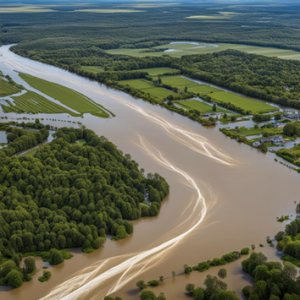
Atmospheric Event-Driven Liberation of Sediment at Mass Wasting Sites Across Puerto Rico: Short and Long Term Effects from Source to Sink
The talk Atmospheric Event-Driven Liberation of Sediment at Mass Wasting Sites Across Puerto Rico delves into the release of sediment during atmospheric events, particularly in mass-wasting areas in Puerto Rico. The discussion covers the short-term and long-term consequences of these events, from the initial source of sediment to its ultimate deposition. This presentation provides insights into the complex processes involved, which can impact the environment and coastal regions, shedding light on the dynamics of sediment transport during extreme weather events in Puerto Rico.
Resource: Dr. Stephen Hughes | Department of Geology, UPRM
